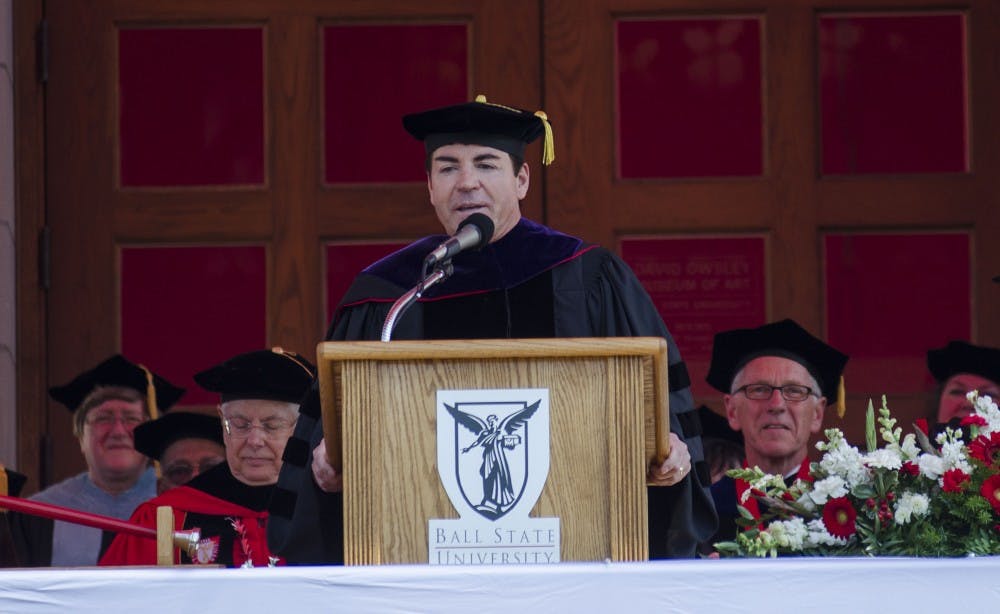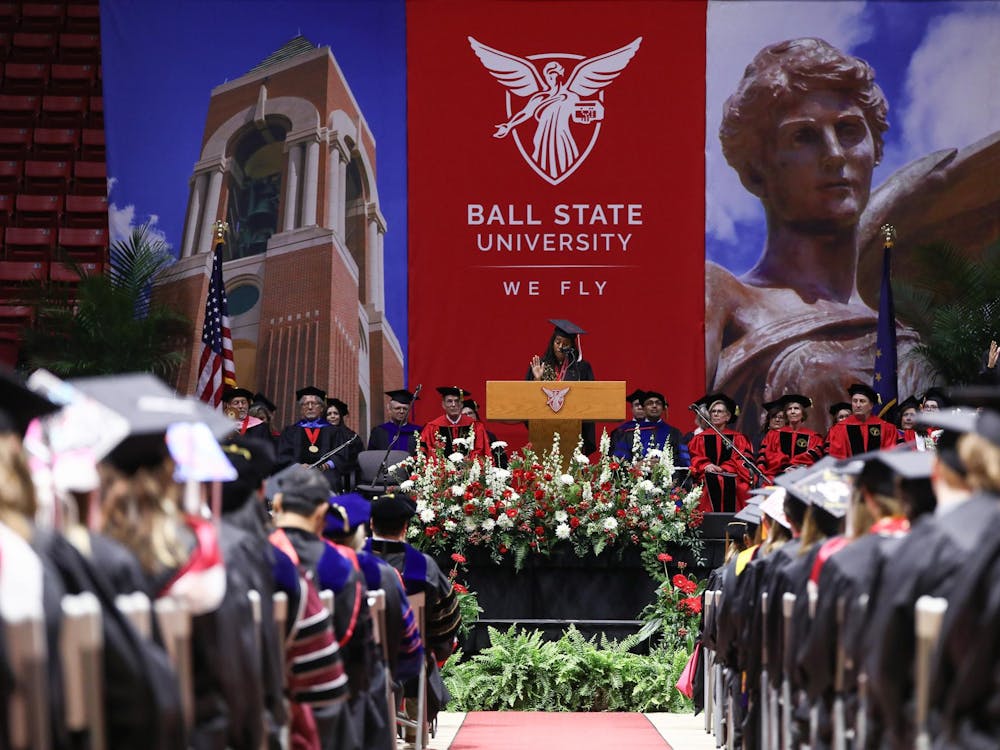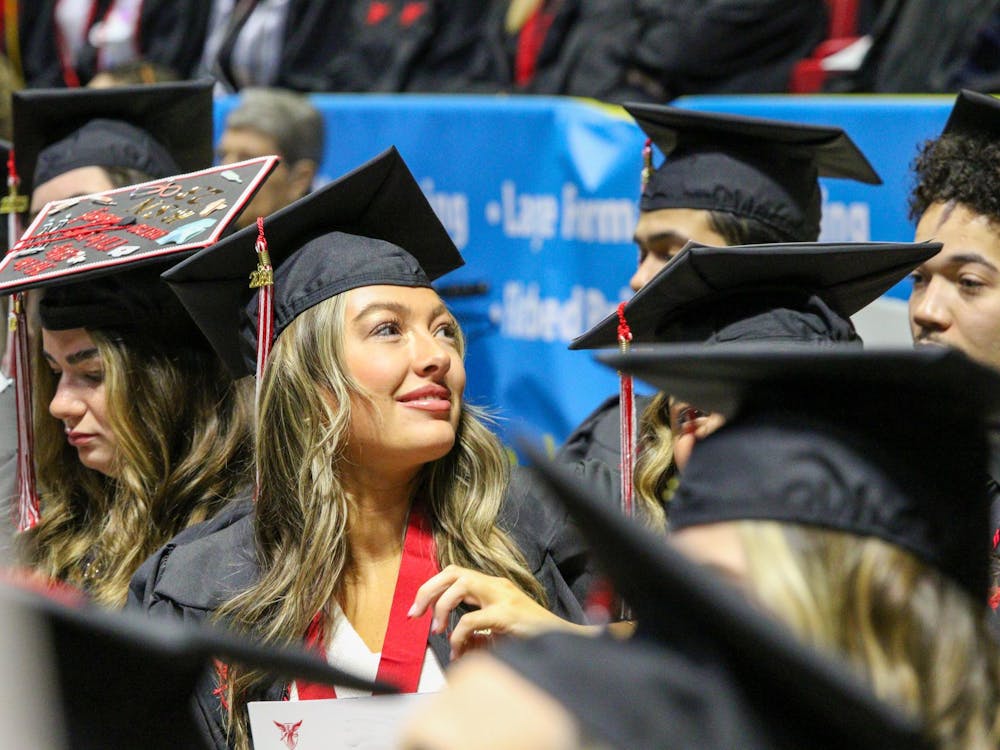Grant breakdown:
- Charles Koch Foundation — $1.08 million
- John "Papa John" Schnatter — $2.17 million
Despite some controversy on campus over a grant from the Charles Koch Foundation and John "Papa John" Schnatter, only one-third of the grant is actually from the Koch family.
Schnatter donated $2.17 million of the grant, and the Charles Koch Foundation donated $1.08 million, according to the grant agreement.
The contract between the university, the Ball State University Foundation and the Charles Koch Foundation shows no signs of the money coming with strings attached.
The very first clause in both the contract with the Charles Koch Foundation and the one with Schnatter is on promoting academic freedom.
The grant money raised some concerns on campus. Read about those concerns here.
The Ball State Foundation has to submit an annual report each year detailing the progress of the John H. Schnatter Institute for Entrepreneurship and Free Enterprise — which is what the grant money will be used to fund. The donor has to approve the report before they donate the next chunk of money.
While the grant is supposed to last for eight years, the contract only shows contribution dates up until Aug. 1, 2019 for both Schnatter and the Charles Koch Foundation.
The university has to follow a few terms in order to keep getting the money from both parties — but none are too demanding.
- Maintain a qualified director for the institute
- Hire people to fill four professorship positions
- University has to allocate $600,000 total for the salaries and benefits of the director and the four professorship positions
- Offer office space for the institute
- Continue to support the institute
Both Schnatter's and the Charles Koch Foundation's contracts said their donation was contingent on each other's — so without either one, the grant would not exist.
The professorship positions, and any others, will be filled following the university's normal hiring procedures.
Terry King, acting president for the university, said there were no stipulations with the grant. Hiring and curriculum will still be managed in the same way the university usually does.
However, if the university breaches the contract or fails to advance the mission of the institute, then both donors have cause for a possible termination.
The grant was signed by King and Cheri O'Neill, president of the University Foundation, on March 2, and there are no signs of Former President Paul W. Ferguson's involvement in the grant.
But King said Ferguson was the one leading the grant conversations for the university, which started in earnest early during the Fall 2015 semester.
About a year ago, when Schnatter spoke at Spring Commencement, King said they told him about the university's plans with entrepreneurship, and Schnatter got excited about it.
Schnatter came back with his people, and also brought colleagues from the Charles Koch Foundation with him.
The Koch Brothers have caused some controversy on campuses due to their resistance against sustainability. A few people at the Board of Trustees meeting spoke up, and some have been posting on social media about it.
Americans for Prosperity, a conservative group backed by the Koch brothers, persuaded many Congress members to sign a pledge to vote against climate change legislation unless its accompanied by an equivalent amount of tax cuts.
And because climate change problems tend to have costly fixes, the pledge essentially acts as a road block to any action.
Mike Pence, governor of Indiana, is one of the legislators who have signed the pledge. Pence is also in charge of appointing Ball State trustees.
Although there is fuss on campus about the university accepting this grant, this isn’t the first time the university has accepted money from the Koch brothers. Since 2009, the university has received $38,600 from the Charles Koch Charitable Foundation, according to polluterwatch.org.
And out of the 12 founding signatories of The American College & University Presidents' Climate Commitment — of which Ball State was one of when former president Jo Ann Gora was in office — only three have accepted donations from the Koch brothers.
Click here to see the full grant agreement.
|
Grant breakdown: Charles Koch Foundation — $1.08 million John "Papa John" Schnatter — $2.17 million |





